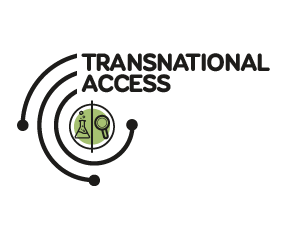TA2 Distributed Planetary Laboratory Facility
The disparate bodies in our Solar System are made up of remarkably diverse environments, many incomparable to terrestrial conditions.
TA2 Distributed Planetary Laboratory Facility (DPLF) provides access to 24 facilities within 13 research centres in Europe and 11 facilities in South Korea that enable the simulation or characterisation of planetary conditions and materials, including:
- The validation of instrument design and performance
- The study of physical and geological processes that form specific planetary environments,
- The evaluation of biogeochemical processes that control whether life could evolve or survive.
- Detailed mineralogical, (bio) geochemical and isotopic characterisation of (extra-terrestrial) sample materials.
The Europlanet Transnational Access programme supports visits to the following facilities:
European Facilities
1. Geology and Geochemistry radiogenic and non-traditional stable Isotope Facility (GGIF), Vrije Universiteit Amsterdam, NL.
2. VU (exo)Planetary Interior Simulation Laboratory (PISL), Vrije Universiteit Amsterdam, NL.
3. Petrology-Mineralogy Characterisation Facility (PMCF), Natural History Museum, UK.
4. Planetary Environment Facilities (PEF). University of Aarhus, Denmark.
5. Planetary Spectroscopy Laboratory (PSL), DLR, Germany.
6. Planetary Simulation Laboratory (PASLAB), DLR, Germany.
7. University of Kent Light Gas Gun Laboratory, UK.
8. Cold Surfaces spectroscopy (CSS), IPAG, France.
9. Ion probe facility (IPF), CRPG, France.
10. Stable Rare Gas and Radiogenic Isotope Facility (SGRIF), CRPG, France.
11. Atomki Ice Chamber for Astrophysics/Astrochemistry (ICA), Hungary.
12. Atomki ECRIS Laboratory: Atomki-Queen’s University Ice Laboratory for Astrochemistry (AQUILA), Hungary.
13. Electron induced fluorescence laboratory (EIFL) – Comenius University, Slovakia.
14. ETH Zürich Geo- and Cosmochemistry Isotope Facility, Switzerland.
15. ETH Zürich Geo- and Cosmochemistry Noble Gas Laboratory, Switzerland.
16. Isotoptech Carbon-14 dating accelerator mass spectrometry laboratory, Hungary.
17. Isotoptech Stable/Clumped Isotopes Laboratory (ISIL), Hungary.
18. Isotoptech Noble Gas Isotope facility (INGIL), Hungary.
19. Center for Microbial Life Detection, Medical University Graz, Austria.
20. Mars Chamber Facility, Open University, Milton Keynes, UK.
21. NanoSIMS 50L (NSIMS), Open University Isotopes Facilities, UK.
22. Laser Fluorination System, Open University Isotopes Facilities, UK.
23. Flow-Through Simulation Chambers, Open University, UK.
25. Swedish Planetary Ices Laboratory, Lulea Technical University, Sweden.
Korea Basic Science Institute (KBSI) Facilities
Korea Basic Science Institute (KBSI) offers eleven state-of-the-art research instruments for Transnational Access through Europlanet 2024 RI. KBSI will cover the cost of 8 to 10 projects from European scientists each year. Contact person: Dr. Keewook Yi (kyi[at]kbsi.re.kr)
High Precision Isotope Geochemistry/Cosmochemistry and Geochronology Laboratory
26. Sensitive High Resolution Ion MicroProbe / SHRIMP-IIe/MC
27. Isotope microscope with SCAPS imaging detector
28. Laser Ablation-Multi Collector-Inductively Coupled Plasma Mass Spectrometer
29. Nano Secondary Ion Mass Spectrometer
30. Thermal Ionization Mass Spectrometer
31. Multi-collector Static Vacuum Mass Spectrometer
32. Automated Optically Stimulated Luminescence system
High Resolution TEM Laboratory
33. High Voltage Electron Microscope
34. Atomic-level STEM and EDX/EELS analysis
35. Ultra-Corrected-Energy-Filtered TEM
36. Double Cs & monochromated TEM
37. Bio-High Voltage Electron Microscope
38. Cryo-Electron Microscope System
Back to TA main page.
Back to Europlanet 2024 RI homepage.



